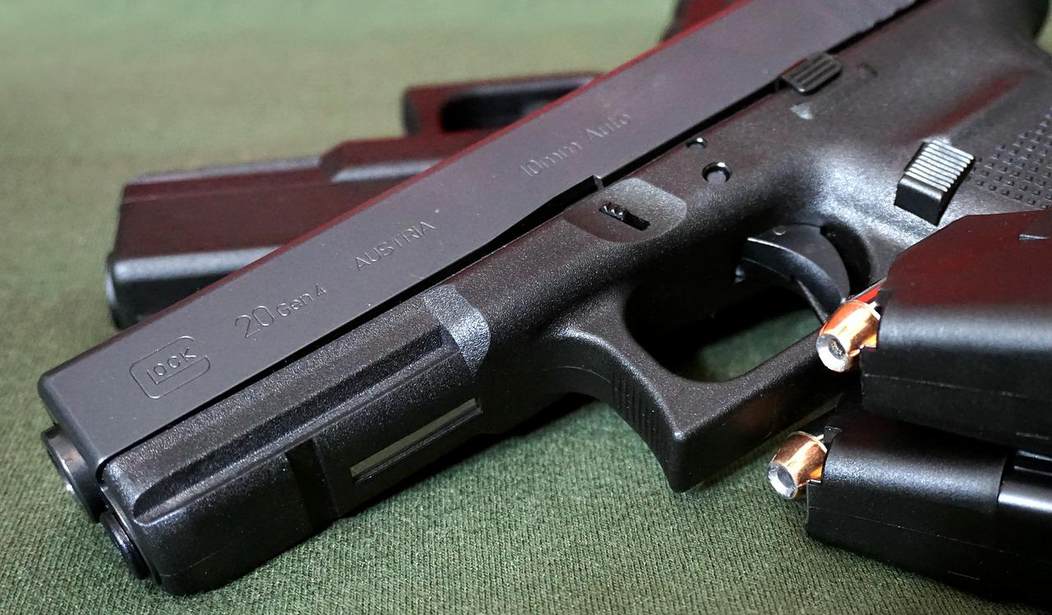For several years the city of Fargo, North Dakota has prohibited FFL's from operating out of their homes, but the state legislature took aim at that restriction last year and passed a law that bans localities from establishing zoning ordinances that specifically include firearms and ammunition based businesses.
The city almost immediately filed suit challenging the law, but this week state District Judge Cherie Clark ruled against Fargo; tossing out the city's lawsuit and rejecting its argument that the zoning preemption law violates the state constitution and the home rule powers granted to local authorities.
“While the Court agrees that (the North Dakota Constitution) intends for ‘maximum local self-government,’ the law is not settled that this language alone provides home rule cities the right to legislate on topics the state legislature has limited,” the judge wrote.
But she also expressed concerns about the Legislature's actions: "If the legislature continues to pare home rule powers, home rule cities lack the discretion to address important issues impacting their respective and unique communities.”
What, exactly, is so unique about Fargo that federal firearms licensees shouldn't be allowed to operate a home-based business? The city has never offered a good explanation, instead blithely asserting that it "does not want its residents to utilize their homes in residential areas as gun stores.”
Well, tough. There's no prohibition in either state or federal law that precludes home-based FFLs, and it doesn't appear that any other locality in the state has tried to erect any similar barriers, so why should FFLs in Fargo be punished or forced to spend money on a brick-and-mortar location, especially if they're selling guns on a part-time basis?
This is actually the second law that the state legislature has adopted to deal with Fargo's restrictions, but the city was successful in defending its ordinance in 2021, which led lawmakers to try again last year.
Bill sponsor and Republican state Rep. Ben Koppelman told a state Senate panel in April that the issue came to greater attention in 2016 when, because of the ordinance, the federal Bureau of Alcohol, Tobacco, Firearms and Explosives refused to renew the federal firearms licenses of Fargo dealers who sold out of their homes.
“What is at issue is whether we want local governments creating gun control or whether we want gun regulations to remain a state-controlled issue,” Koppelman said in April. “Without this bill and in light of the (2021) court opinion, I think local political subdivisions could propose all sorts of local gun control, and based on the anti-gun track record of the City of Fargo Commission, I think we could expect it.”
Both sides in the lawsuit agree that the issue at hand goes beyond the zoning laws in question, and instead touches on the ability of home-rule localities to pass their own laws in any number of areas. But even though the North Dakota Constitution compelled the state legislature to come up with a home-rule statute and lawmakers granted home-rule communities the authority to adopt ordinances, resolutions, and regulations that provide for public health, safety, morals, and welfare, it's still within the state's authority to declare certain subjects off-limits to local control.
Three years ago the legislature adopted a preemption law stating:
1. A political subdivision, including home rule cities or counties, may not enact a zoning ordinance or any other ordinance relating to the purchase, sale, ownership, possession,transfer of ownership, registration, or licensure of firearms and ammunition which is more restrictive than state law. All such existing ordinances are void.
A state judge ruled that Fargo's home-based FFL zoning prohibition could still be enforced because the state had no regulations concerning commercial firearms sales. While most of us would conclude that any zoning ordinance would be more restrictive than a state law that doesn't exist, District Judge Stephannie Nicole Stiel sided with Fargo's argument that the ordinance in question wasn't more restrictive than state law because state statutes were silent on commercial gun sales sales.
That's not the case these days, thanks to the legislature's response last year, and Judge Clark made the right call, even though her editorializing on the legislature's actions was completely unnecessary. Fargo officials could still appeal Clark's decision, but the odds of success are pretty long, and it would be a waste of time and taxpayer money to try to keep this needless ordinance in place instead of accepting home-based FFLs and the tax revenue they generate.









Join the conversation as a VIP Member